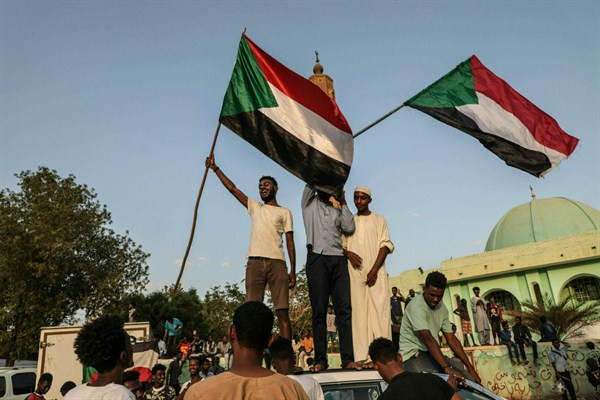Is there any current world leader who faces a more imposing set of challenges than Sudan’s prime minister, Abdalla Hamdok? Four months after taking charge of a transitional government that was formed in the wake of Sudan’s popular revolution, Hamdok—a veteran diplomat with a doctorate in economics—has the unenviable task of repairing a divided, unstable and economically ravaged country with both hands tied behind his back. He is constrained by everyone from partners in the security forces who are resistant to change, to former regime hard-liners, to an expectant Sudanese public, as well as an international community that has offered effusive words of support but has taken few actions to back him up.
Hamdok’s visit to Washington in early December epitomized the difficulties he and his country face. The trip was an opportunity to mark a break with more than two decades of acrimony between Sudan and the United States that resulted from longtime President Omar al-Bashir’s ruinous regime. In some respects, the visit was a success. Hamdok was enthusiastically received in both his public and private engagements—a packed agenda that included talks with departments of government, members of Congress, the U.S. Commission on International Religious Freedom, think tanks, the World Bank and the International Monetary Fund. He reported significant progress to his American audiences, including the start of peace talks aimed at resolving Sudan’s tangle of internal conflicts, new judicial appointments, efforts to seize assets of former government officials, and the removal of a widely hated public order law that was used to victimize women in the name of upholding moral conduct.
Since returning from Washington, Hamdok has begun to deliver on his promise of accountability for crimes committed by the former regime. On Dec. 14, Bashir was found guilty of corruption and sentenced to two years in a reform facility. Sudan’s public prosecutor has said that broader charges will follow related to human rights abuses committed during his rule.

